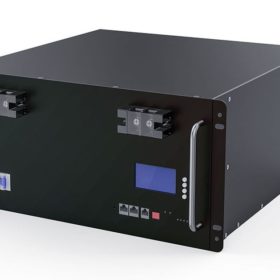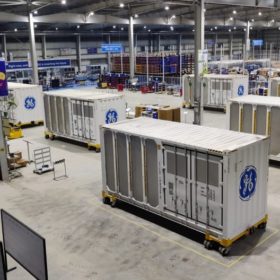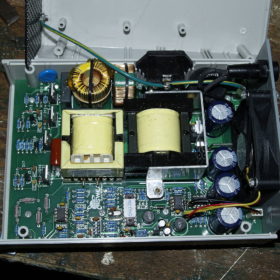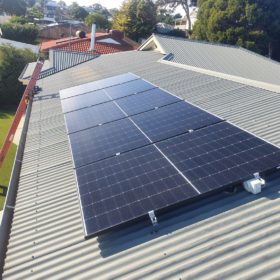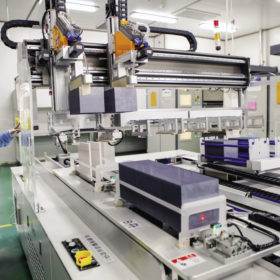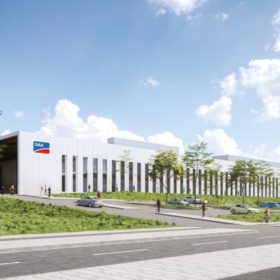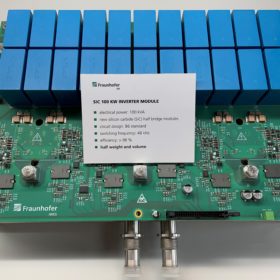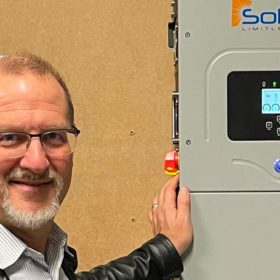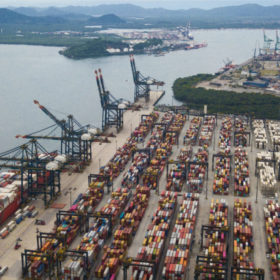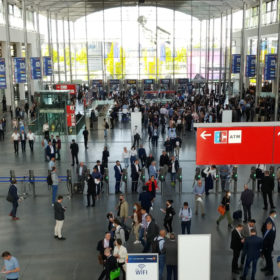Indian manufacturer unveils battery with solar storage
India’s Natural Battery Technologies has developed lithium-based battery inverters that can be charged with solar power. The batteries are designed for residential and commercial use, with storage capacities typically ranging from 1.5 kWh to 20 kWh.
General Electric to triple solar, battery production capacity in India
The US multinational will expand the solar and battery energy storage manufacturing capacity at its factory in Tamil Nadu to 9 GW per annum by the end of 2022. The factory manufactures the FlexInverter power conversion solution and the FlexReservoir utility-scale energy storage systems.
New model for grid-forming inverter operation
Scientists in the United States have developed a new model to allow utilities to use grid-forming inverters in order to better renewable energy intermittency. They described the inverter main circuit representation, the droop control, and the fault current limiting function.
Enphase claims new safety regulations mean more Australian installers prefer its IQ Microinverters
Long-overdue safety and compliance regulation increases came into effect in May. US-based Enphase Energy claims its technology’s exemption from much of nation-wide regulations means installers across the country are opting for its products exclusively.
Chinese PV Industry Brief: LDK to invest in 600 MW HJT solar cell factory as price of polysilicon soars
A Chinese metals industry group said the price of polysilicon is rising, just as Comtec Solar revealed that it is gearing up to sell off its shuttered wafer factories in Shanghai. Flat Glass, meanwhile, has announced plans to expand solar glass production capacity.
SMA to raise inverter capacity to 40 GW
SMA Solar Technology has announced plans to build a new manufacturing facility at its headquarters in Niestetal, Germany.
Downsizing gallium nitride inverters
A German consortium led by Fraunhofer IEE aims to bring gallium nitride inverters closer to commercial viability. The primary goal of the research project is the optimization and miniaturization of inverters, including passive components such as cooling systems, casings, and mounting structures.
Redflow announces integration with US inverter company
Australian redox-flow battery specialist Redflow has upped the ante on its plans to expand into the US market, announcing that it has completed testing to pave the way for its battery energy storage system to be used in conjunction with hybrid inverters manufactured by US solar engineering company Sol-Ark.
Brazil imported 5.2 GW of solar modules in Q1
High-power solar panels with outputs above 500 W accounted for more than 60% of all PV module imports to Brazil by volume in the January-March period.
Siemens to use award-winning inverters in solar projects
The German developer has committed to buying central inverters from Basque manufacturer Vizcaya, with the latter predicting it will supply the goods on a gigawatt scale annually.
